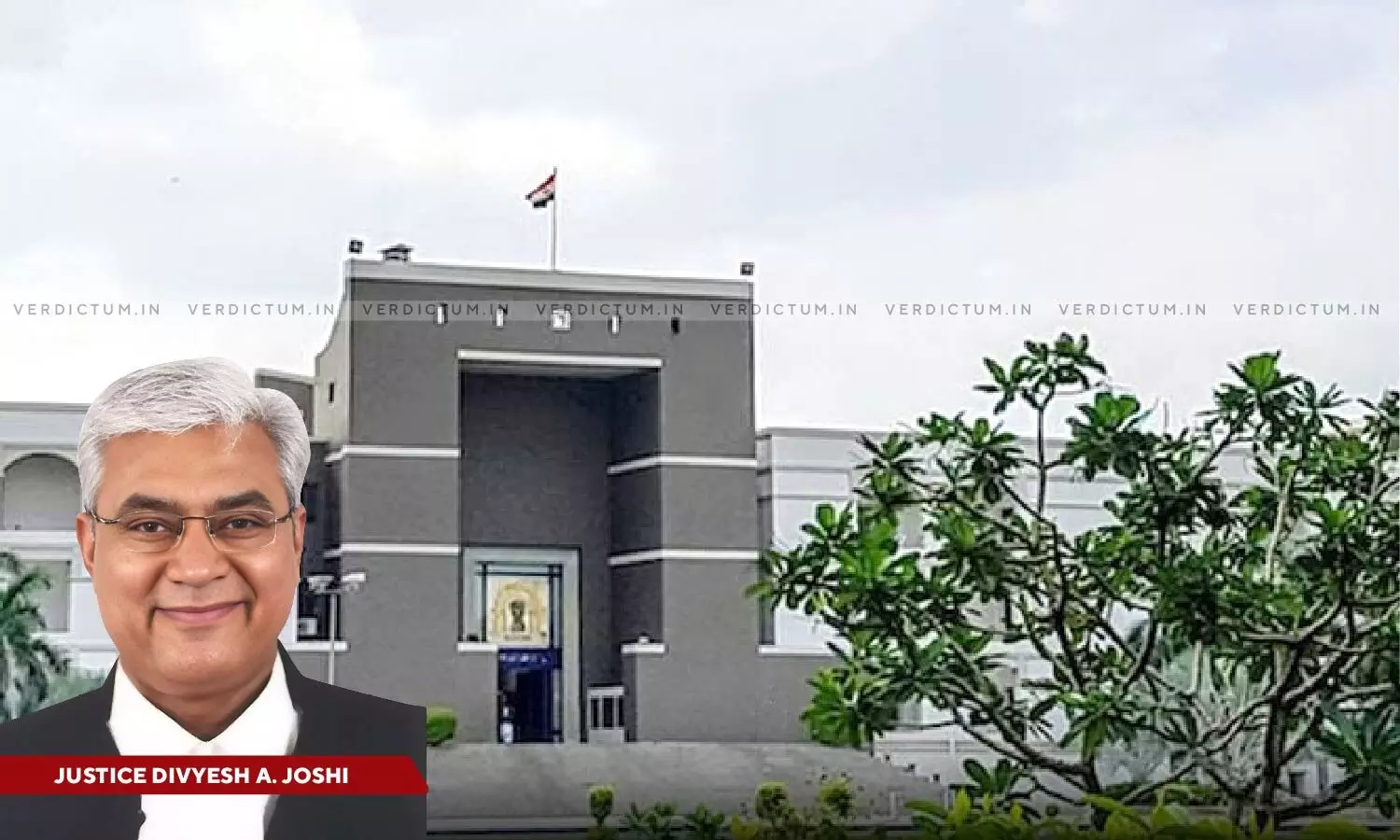
'Rape By Man “Husband” On Woman “Wife” Is Rape': Gujarat HC
 |
|The Gujarat High Court observed that the act of rape is unequivocal and reprehensible, regardless of whether it is perpetrated by a man who holds the legal status of a "husband" on the woman designated as his "wife."
A Daughter-in-law filed a complaint accusing her mother-in-law of coercing the former into creating explicit content for financial gain. The Mother-in-law contended that she only followed her son's instructions. The Mother-in-law’s bail application was rejected by the High Court.
The Court dismissed the idea of husbands being exempt from legal consequences for sexually assaulting or raping their wives, highlighting the unchanged gravity of the offence regardless of the marital relationship.
“In most of the cases of such a nature, the usual practice is that if the man is the husband, performing the very same acts as that of another man, he is exempted. In my considered view, the same cannot be countenanced. A man is a man; an act is an act; rape is a rape, be it performed by a man the “husband” on the woman “wife”, the Bench of Justice Divyesh A. Joshi observed.
Advocate Urvashi K Mehta appeared for the Applicants and Additional Public Prosecutor Manan Mehta appeared for the State.
The Applicant approached the High Court seeking regular bail under Section 439 of the Code of Criminal Procedure, 1973 (CrPC) in connection with an FIR involving charges under Sections 354(a)(c), 376, 376(D), 498(a), 506(2), 508, 509, 34, 114, and 201 of Indian Penal Code, 1860 (IPC), as well as Sections 66(e) and 67(a) of the Information Technology Act, 2000 (IT Act).
The complainant, who is the daughter-in-law of the Applicant, alleged that she was coerced into recording explicit videos and photos for monetary gain. The Applicant, the mother-in-law, was accused of aiding and abetting the complainant's husband in committing the offence. The defence argued that the applicant's role is limited to supporting her son and husband and that the charges do not justify the severity of the allegations.
The Court framed the following issues:
“(i) Whether cognizance being taken against the applicant-accuse for offence punishable under Section 376 of IPC is tenable in law?
(ii) Whether the allegations against the applicant accused for other offences are tenable in law?”
The Court noted that the complainant accused her husband, father-in-law, and mother-in-law of committing brutal sexual acts against her, with explicit details provided in the charge sheet. The husband recorded intimate moments, shared them on family WhatsApp, and uploaded them to a porn website, and the applicant, the mother-in-law, actively participated and was aware of these illicit activities.
The Bench emphasized that since the establishment of the Republic of India, the Constitution governs the nation, treating women equally to men and considering marriage as a partnership of equals. Fundamental rights, including the right to live with dignity, personal liberty, bodily integrity, sexual autonomy, reproductive choices, privacy, and freedom of speech and expression under Articles 14, 15, 19, and 21, are guaranteed by the Constitution. The Court highlighted that marital rape is illegal in various countries, rejecting the exemption for husbands from punishment for sexually assaulting or raping their wives. The Court affirmed that a man committing such acts is subject to punishment under Section 376 of the Indian Penal Code, challenging the prevailing practice of granting exemptions based on marital status.
“Therefore, the actual incidence of violence against women in India is probably much higher than the data suggests, and women may continue to face hostility and have to remain in environments where they are subject to violence. This silence needs to be broken. In doing so, men, perhaps more than women have a duty and role to play in averting and combating violence against women”, the Court added.
The Bench expressed concern about gender violence being concealed by a culture of silence, suggesting that the actual incidence of violence against women in India may be much higher than reported due to factors like economic dependence on families and fear of social ostracization. Emphasizing the need to break this silence, the Court stressed the responsibility of both men and women in preventing and addressing violence against women. The Bench observed the varied nature of sexual violence, ranging from rape with or without violence to offences like stalking, eve-teasing, verbal and physical assault, and harassment. The Bench noted the harmful impact of trivializing and normalizing "minor" offences, sometimes romanticized in popular culture, perpetuating attitudes that negatively affect survivors.
“Such “minor” crimes are, regrettably not only trivialised or normalized, rather they are even romanticized and therefore, invigorated in popular lore such as cinema. These attitudes which indulgently view the crime through prisms such as “boys will be boys” and condone them, nevertheless have a lasting and pernicious effect on the survivors”, the Bench noted.
Additionally, the Court noted that the United Nations Organisation defines "violence against women" as any act of gender-based violence causing or likely to cause physical, sexual, or psychological harm to women, including threats, coercion, or arbitrary deprivation of liberty, whether in public or private life. The Court emphasized that offensive behaviour against women, encompassing criminalized acts such as physical or verbal abuse, aims to silence or subdue the survivor, leading to acute discomfort and undermining their dignity, self-worth, and respect.
Accordingly, the Court dismissed the Petition.
Cause Title: Anjanaben v State Of Gujarat